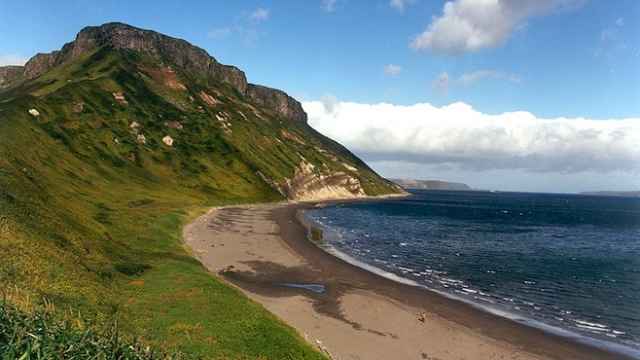A renowned mathematician from the University of London died in Moscow after getting lost on a stroll through the forest and freezing to death.
Alexei Chervonenkis, 76, famous for his contribution to computational learning theory, held appointments with both the University of London and the Russian Academy of Sciences.
He reportedly told his wife he was going for a walk in Moscow's Losiny Ostrov (Elk Island) park on Sunday evening. Later that evening, however, he called to say he had gotten lost, the Moskovsky Komsomolets newspaper reported.
When his wife was unable to contact him later that night, a search party was organized, including volunteers and rescuers from the Emergency Situations Ministry. The search was conducted using two helicopters and 182 volunteers, according to Moskovsky Komsomolets.
Chervonenkis' body was located by helicopter on Tuesday morning, the report said. Medics determined that he had died of hypothermia.
His wife was cited as saying an undisclosed medical problem may have contributed to his death, saying an operation he had undergone two months ago had likely weakened his body's natural defenses.
Losiny Ostrov is the largest park in the Moscow region, with forests covering 83 percent of its territory. Park administrators said this was the first incident of an individual having gotten lost in the park, Moskovsky Komsomolets reported.
A Message from The Moscow Times:
Dear readers,
We are facing unprecedented challenges. Russia's Prosecutor General's Office has designated The Moscow Times as an "undesirable" organization, criminalizing our work and putting our staff at risk of prosecution. This follows our earlier unjust labeling as a "foreign agent."
These actions are direct attempts to silence independent journalism in Russia. The authorities claim our work "discredits the decisions of the Russian leadership." We see things differently: we strive to provide accurate, unbiased reporting on Russia.
We, the journalists of The Moscow Times, refuse to be silenced. But to continue our work, we need your help.
Your support, no matter how small, makes a world of difference. If you can, please support us monthly starting from just $2. It's quick to set up, and every contribution makes a significant impact.
By supporting The Moscow Times, you're defending open, independent journalism in the face of repression. Thank you for standing with us.
Remind me later.





